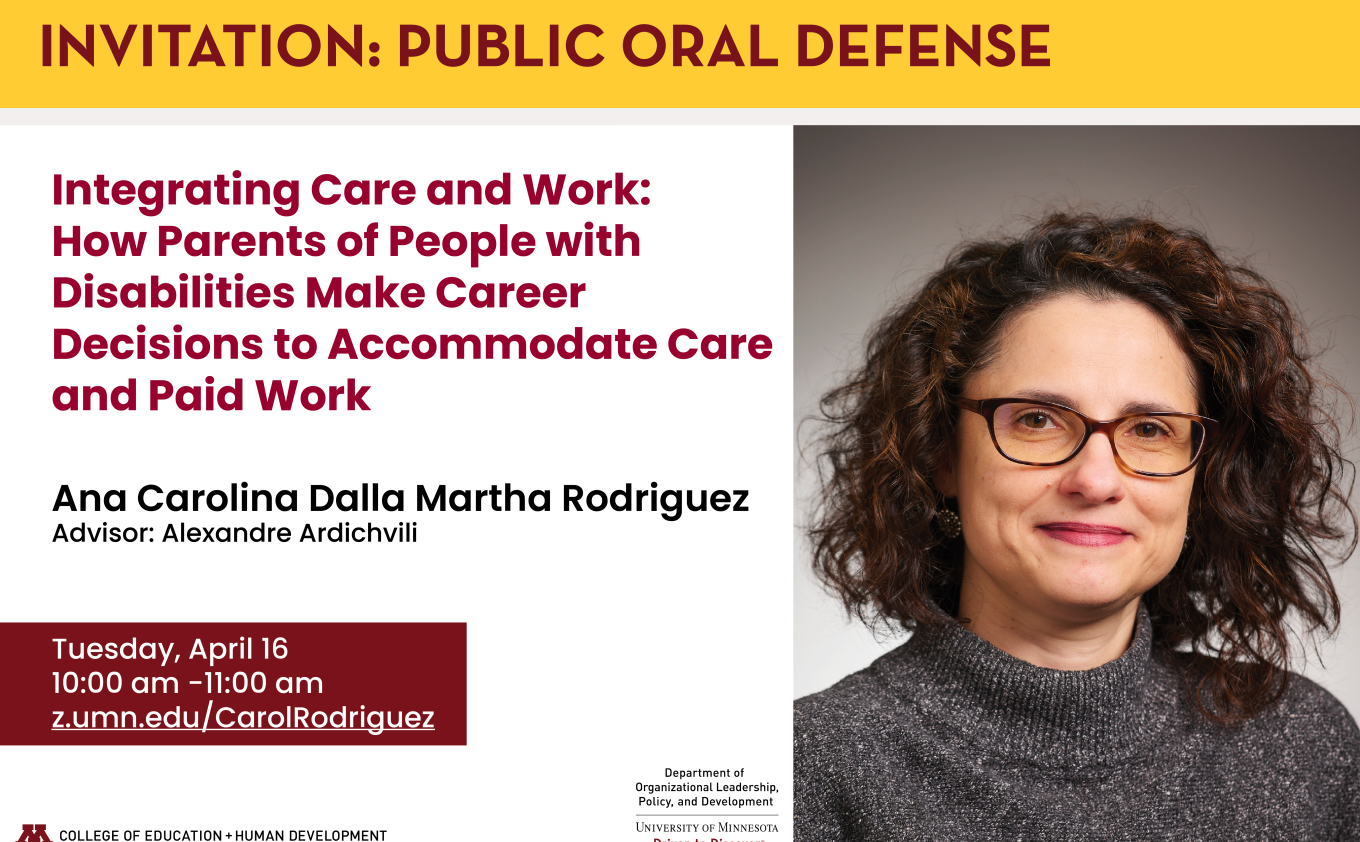Events
Public Oral Defense: Ana Carolina Dalla Martha Rodriguez (HRD)

Integrating care and work – How parents of people with disabilities make career decisions to accommodate care and paid work
Advisor: Alexandre Ardichvili
Parenting a person with disabilities (PWD) is an experience that transforms one’s beliefs, family relationships, social connections, financial stability, and professional trajectory. Parents of PWD engage in what scholars call exceptional care – intense, lifelong, cyclical, and crisis-driven care. Studies show that parents of PWD often experience heightened work-family conflict and physical, emotional, and financial stress. Nevertheless, employment is critical for these parents’ financial and mental health, as work provides necessary income and personal fulfillment. This study applied a grounded theory methodology to investigate how Brazilian parents of PWD make career decisions to accommodate care and paid work, also examining the systemic factors that influence these decisions. The findings of this study contribute to advancing and integrating career development and work-life theories, highlighting the importance of intersecting identities and organizational and social dynamics. Additionally, this study offers practical implications for career development professionals, HRD practitioners, organizations, and public policymakers on how to support the professional development of caregivers.
Photographs taken at the event may be used in University of Minnesota print and online publications, promotions, or shared with the CEHD community.
The University of Minnesota shall provide equal access to and opportunity in its programs, facilities, and employment without regard to race, color, creed, religion, national origin, gender, age, marital status, familial status, disability, public assistance status, membership or activity in a local commission created for the purpose of dealing with discrimination, veteran status, sexual orientation, gender identity, or gender expression. All are welcome.
The University of Minnesota campuses were built on the traditional homelands of the Dakota and Ojibwe, and scores of other Indigenous peoples who have walked on these lands from time immemorial. It is important to acknowledge the peoples on whose land we live, learn, and work as we seek to improve and strengthen our relations with our tribal nations. We also acknowledge that words are not enough. We must ensure that our institution provides support, resources, and programs that increase access to all aspects of higher education for our American Indian students, staff, faculty, and community members.